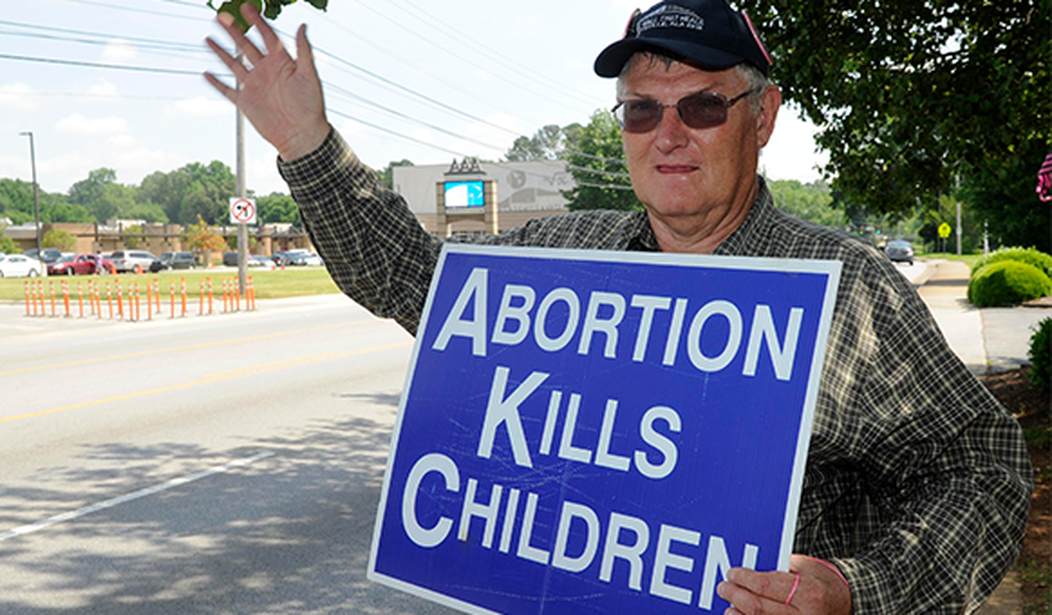So, when the U.S. Supreme Court numbered abortion among our precious constitutional rights, we expected everlasting bliss? Anything but the present knock-down-drag-out over Roe v. Wade and its prospects for survival?
I mean, we're stunned to see state legislatures moving to outlaw abortion? Why? On what grounds? America is presently absorbing a major political science lesson. To wit, a social revolution commenced and overseen by a coterie of philosopher kings -- Platonic guardians, you could say -- is a non-starter. Won't work. We generally don't do business that way in America.
Roe v. Wade was a notable exception to the seemingly odd notion that the governed and those who govern them should work hand in hand so as to maximize consent and minimize anger of the sort deadly to peace and unity. You negotiate rivalries, see? You don't turn to a body of semi-Solomons saying, "Tell us what's right; we're too dumb to figure it out for ourselves."
It's been more than 46 years since Roe. Ah, the changes we've seen! Back then, we still conversed with telephone operators. The odor of lighted cigarettes enveloped commercial airliners, and the Nixons were our presidential royalty.
Forty-six years has not rendered America amenable to the divinations of seven intellectually polished law school graduates -- two colleagues dissented -- who revealed something previously unsuspected by the dumb peasants. An expectant mother, the court majority said, enjoyed the constitutional right to decide whether or not to give birth. As for any constitutional rights the baby might enjoy, we surely have gleaned by now here we have an entirely different matter!
Up to 1973, the several states had spoken to the matter of abortion through elected legislatures and the weighing of competing interests. The great majority of state laws emphasized protection for the not yet born as opposed to solicitousness for the mother's choice.
Recommended
At that, nothing was engraved in marble, with guards on hand to shoo away proponents of change. The self-liberating '60s produced a growing clamor for liberalization of the abortion laws. Gov. Ronald Reagan of California signed in 1967 the California Therapeutic Abortion Act, enacted on the grounds that the law forbidding abortion except to save a woman's life was in fact responsible for 18,000 illegal abortions -- during many of which the mother (nonwhite in four-fifths of the cases) died. Nor, in any case, was the law regularly enforced. The new law allowed abortion for protection of the mother's health, as well as for pregnancies due to rape or incest.
Whether correct or incorrect, the Legislature's chosen solution reflected popular acceptance: the consequence of open argumentation over a period of six years. No semi-Solomons handed it down from the throne. Its passage by elected lawmakers meant a different set of elected lawmakers could write a law with new or few specifications -- in line, more or less, with voter preferences. The rest of the 50 states were free to do likewise. Or do nothing at all.
There followed Roe v. Wade -- the proclamation, on dubious constitutional grounds, of a national abortion policy. The states could enact weak protections for unborn life. Strong protections? Naaah.
Which is what brings us to this present moment, with Alabama and several other states writing into statute the human life protections favored, presumably, by their own citizen-electors, rather than by the semi-Solomons.
It seems hardly likely today's high court, given the crackling tensions of the moment, would try to throw a 46-year-old revolution completely into reverse. To be sure, in older times, the justices would never have volunteered themselves as moral arbiters. In the age of Jerry Rubin and Abbie Hoffman, they should have known better than to try and reframe our moral norms -- given the moral law's ancient antecedents and its claims on democratic thought and action.
Nonetheless, inasmuch as morals and politics often intertwine and contradict each other, here we are: the semi-Solomons at odds with, as polls suggest, nearly half the populace. What a dim and destructive decision, Roe v. Wade. That much the supposedly sovereign people are beginning to figure out for themselves.
William Murchison is writing a book on American moral restoration in the 21st century. His latest book is "The Cost of Liberty: The Life of John Dickinson."
























Join the conversation as a VIP Member